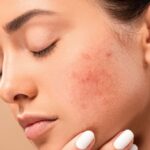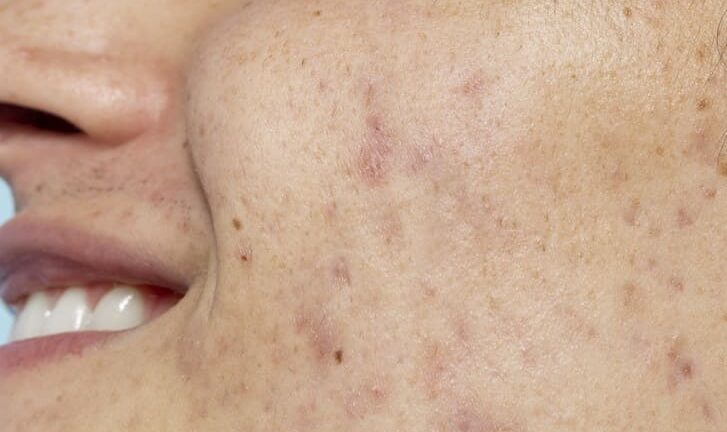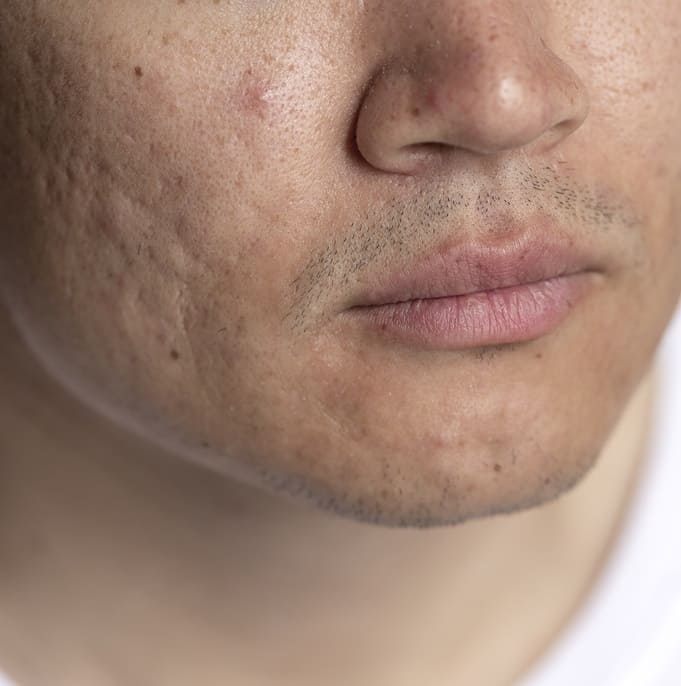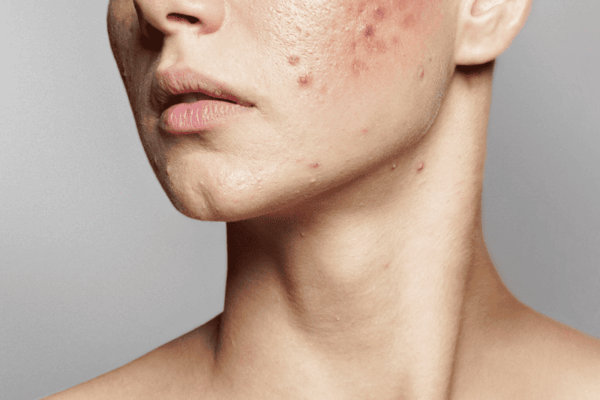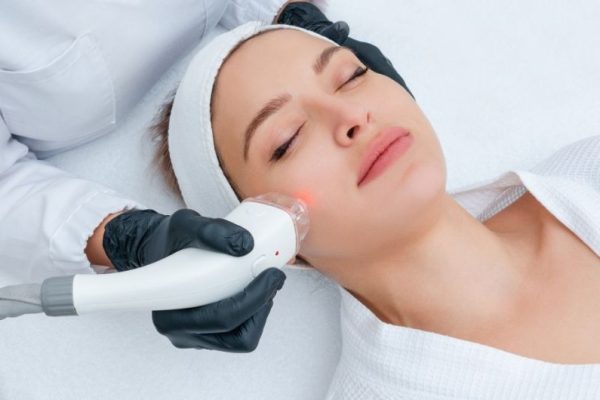Acne scars can have a significant impact on one’s self-esteem and confidence. While there are numerous treatments available today that can effectively reduce or even eliminate acne scars, preparation is key to ensuring optimal results. Whether you’re considering laser therapy, Chemical Peels, Microneedling, or other acne scar treatments, following the right steps before the procedure can make a world of difference. In this blog post, we’ll provide a comprehensive guide on how to prepare for acne scar treatment, covering everything from skincare routines to lifestyle adjustments and what to expect during consultations.
1. Understanding The Skin Type and Scars
Before diving into any treatment, it’s essential to understand your skin type and the type of scars you have. Acne scars can vary significantly in depth, texture, color, and different types of scars may require different treatment approaches. The most common types include:
- Atrophic Scars: These are depressed scars that sit below the surrounding skin. They include ice pick, boxcar, and rolling scars.
- Hypertrophic Scars: These are raised scars that form above the skin’s surface.
- Post-Inflammatory Hyperpigmentation (PIH): While not technically a scar, PIH refers to dark spots left after an acne lesion heals.
Knowing the skin type (oily, dry, combination, sensitive) and scar type will help dermatologist recommend the most effective treatment plan.
Acne Scar treatment requires a customized treatment plan from a dermatologist, which can take multiple sessions over few months based on the type and grade of acne scars. Acne scars can be treated with various methods like Chemical Peels, Subscision, MNRF, Laser Resurfacing, Soft Tissue Fillers, Microdermabrasion etc.,
Chemical Peels: Like the Salicylic acid, Glycolic acid, are used. They increase the skin cell turnover and increase collagen production.
Microneedling: Sterile derma-roller is used, which comprises of fine, sharp, thin needles which puncture the skin. There is development of micro injury which initiates collagen production.
MNRF: Usage of Radiofrequency energy to heat deeper layers of epidermis, to cause control damage which increases collagen and elastin production in the skin. It has a dual advantage. i.e., works for the reduction of acne scars and also causes an increase in collagen to tighten the skin. It is commonly done for rolling scars and box scars.
Subscision: Is done for adhesions of scar to the underlying skin. The adhesion is broken with the help of needle and detached from the overlying skin which is then followed by other laser resurfacing techniques.
Lasers: Both Ablative (Er:YAG and CO2 laser) and non ablative lasers(Nd:YAG and Diode laser) can be used for resurfacing of scar to the skin surface. The laser is decided based on type of acne scar and the available downtime.
Others: Various other procedures which can be done are punch excision, intralesional injections with dermal fillers and fat, etc.,
2. Schedule a Professional Consultation
Consulting with a qualified Expert dermatologist is the first critical step in preparing for acne scar treatment. During the consultation, your dermatologist will:
- Assess your skin: A thorough examination of your skin and scars will help determine the most suitable treatment.
- Discuss your medical history: Be prepared to provide information about your medical history, including any medications you’re taking, allergies, and past skin treatments.
- Set realistic expectations: Your dermatologist will help you understand what results you can realistically expect and how many sessions may be required.
- Explain the procedure: You’ll receive detailed information about the recommended treatment, including how it works, the recovery process, and potential side effects.
3. Follow a Pre-Treatment Skincare Routine
A consistent skincare routine leading up to acne scar treatment can significantly improve the results.
Gentle Cleansing: Use a mild, non-comedogenic cleanser to wash your face twice daily. Avoid using harsh scrubs or exfoliants that irritates the skin.
Moisturizing: Keep your skin hydrated with a suitable moisturizer, especially if you’re using treatments like retinoids or acids that can cause dryness.
Sun Protection: Sun exposure may worsen acne scars and interfere with treatment outcomes. Applying a broad-spectrum sunscreen with at least SPF 30 daily is a must.
Avoid New Products: In the weeks leading up to your treatment, avoid introducing new skincare products to prevent adverse reactions or irritation.
Dermatologist may also advise you to start or stop certain products, such as retinoids or hydroquinone, based on skin’s needs and the upcoming procedure.
4. Adjust Your Lifestyle Habits
Certain lifestyle habits can impact the effectiveness of acne scar treatments. To optimize your skin’s condition, consider making the following adjustments:
- Quit Smoking: Smoking can impair wound healing and reduce the effectiveness of treatments like laser therapy. If possible, quit smoking at least a few weeks before your procedure.
- Limit Alcohol Consumption: Excessive alcohol intake can dehydrate the skin and interfere with healing. Try to eliminate alcohol consumption.
- Maintain a Healthy Diet: A balanced diet rich in vitamins, minerals, and antioxidants supports overall skin health. Focus on eating plenty of fruits, vegetables, and lean proteins while reducing intake of processed foods.
- Stay Hydrated: Drinking plenty of water helps keep your skin hydrated.
5. Prepare for the Day of the Treatment
On the day of your acne scar treatment, take these steps to ensure a smooth experience:
- Clean Your Skin: Arrive with a clean, makeup-free face. Avoid applying any skincare products unless specifically instructed by dermatologist.
- Wear Comfortable Clothing: Depending on the treatment, you may need to lie still for a period of time. Wear loose, comfortable clothing to help you relax.
- Avoid Caffeine: Caffeine can increase anxiety and make you feel jittery. Skip your morning coffee if you’re prone to nervousness.
- Bring a Friend or Family Member: If your treatment requires sedation or you’re feeling anxious, having someone accompany you can provide comfort and assistance.
6. Understand the Recovery Process
Post-treatment care is just as crucial as pre-treatment preparation. Understanding what to expect during recovery will help you avoid complications and achieve the best possible results.
- Follow Aftercare Instructions: Your dermatologist will provide specific aftercare instructions based on the treatment. This may include avoiding sun exposure, using prescribed creams, and following a gentle skincare routine.
- Expect Some Downtime: Some treatments, such as laser therapy or chemical peels, may require a few days to a week of downtime. Your skin may appear red, swollen, or flaky during this time.
- Avoid Picking or Scratching: It can be tempting to pick at peeling skin or scabs, but this can lead to further scarring or infection. Allow your skin to heal naturally.
- Stay Hydrated and Moisturized: Keeping your skin hydrated inside and out will aid in the healing process. Drink plenty of water and use a moisturizer recommended by your dermatologist.
7. Schedule Follow-Up Appointments
Acne scar treatments often require multiple sessions to achieve optimal results. Regular follow-up appointments allow your dermatologist to monitor your progress and make any necessary adjustments to your treatment plan.
During follow-ups, your dermatologist may:
- Evaluate your skin’s response: They’ll assess how well your skin is healing and whether additional treatments are needed.
- Provide additional aftercare advice: Depending on skin’s condition, dermatologist may recommend changes to your skincare routine or additional products.
- Discuss further treatments: In some cases, different types of treatments may be combined over time for enhanced results.
8. Be Patient and Persistent
Acne scar treatment is a process that requires patience and persistence. Results can vary based on the severity of the scars, the type of treatment, and your skin’s natural healing ability. It’s important to maintain realistic expectations and understand that it may take several months to see significant improvement.
9. Consider Emotional and Mental Health
Dealing with acne scars can be emotionally challenging. It’s not uncommon to feel self-conscious or anxious about your appearance. Preparing for treatment also means taking care of your mental and emotional well-being.
10. Stay Informed and Empowered
Knowledge is power when it comes to acne scar treatment. Stay informed about your options, ask questions, and make decisions that align with your goals and comfort level. The more you understand about the process, the more confident you’ll feel as you move forward.
Conclusion
Preparing for acne scar treatment is a crucial step in achieving the best possible outcomes. By understanding the skin type, following a tailored skincare routine, making lifestyle adjustments, and being mentally prepared, you can enhance the effectiveness of your treatment and pave the way for smoother, clearer skin. Remember, the key to successful acne scar treatment lies in careful preparation, professional guidance, and a commitment to skin’s health and well-being.
Consult FMS Skin and Hair Clinic, for Acne Scars Treatment in Hyderabad and other Advanced Cosmetic Skin & Hair Treatments.For Appointment Booking. Please call us or WhatsApp at 8885060760 Or Email Us at [email protected]

Author: Dr.Deepa


